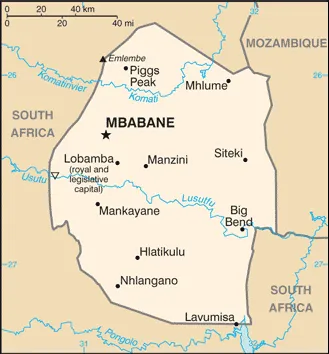Eswatini, a small landlocked country in Southern Africa, has been facing significant challenges in meeting its energy demands. With a growing population and increasing industrialization, the need for a sustainable and reliable energy supply has become more critical than ever. In response to this pressing issue, the government of Eswatini has been exploring the potential of renewable energy sources to diversify its energy market and reduce its dependence on imported fossil fuels.
Currently, Eswatini relies heavily on imported electricity from South Africa and Mozambique, which account for over 80% of its total energy consumption. This dependence on external sources exposes the country to fluctuations in energy prices and supply disruptions, which can have severe economic consequences. Moreover, the country’s limited domestic energy production, which is primarily based on hydropower and biomass, is insufficient to meet its growing energy needs.
In light of these challenges, the government of Eswatini has been actively promoting the development of renewable energy sources, such as solar, wind, and biomass, to enhance its energy security and promote sustainable development. In 2018, the country launched its National Energy Policy, which aims to increase the share of renewable energy in the national energy mix to 50% by 2030. This ambitious target reflects the government’s commitment to transitioning towards a more sustainable and diversified energy market.
One of the key drivers behind Eswatini’s push for renewable energy is the country’s abundant solar resources. With an average of over 3,000 hours of sunshine per year, Eswatini has immense potential for solar power generation. Recognizing this potential, the government has been actively supporting the deployment of solar technologies, both at the utility-scale and off-grid level. In 2020, Eswatini commissioned its first utility-scale solar power plant, a 10 MW facility located in the Lavumisa region. This project not only represents a significant milestone in the country’s renewable energy journey but also serves as a testament to the viability of solar power in Eswatini.
In addition to solar power, Eswatini has also been exploring the potential of wind energy. The country’s mountainous terrain and strong wind resources make it an ideal location for wind power generation. To tap into this potential, the government has been conducting wind resource assessments and feasibility studies to identify suitable sites for wind power development. Furthermore, Eswatini has been engaging with international partners and investors to attract funding and technical expertise for its wind power projects.
Another promising area of renewable energy development in Eswatini is biomass. The country has a significant biomass resource base, primarily in the form of agricultural and forestry residues. These resources can be utilized for the production of bioenergy, which can help to diversify the country’s energy mix and reduce its reliance on imported fossil fuels. The government has been promoting the use of biomass for energy production through various initiatives, such as the establishment of biomass energy centers and the provision of financial incentives for biomass-based projects.
In conclusion, Eswatini’s energy market is at a critical juncture, with the need for a sustainable and reliable energy supply becoming increasingly urgent. The government’s efforts to promote renewable energy sources, such as solar, wind, and biomass, have the potential to transform the country’s energy landscape and contribute to its long-term energy security. By harnessing its abundant renewable energy resources, Eswatini can not only reduce its dependence on imported fossil fuels but also pave the way for a more sustainable and prosperous future.


